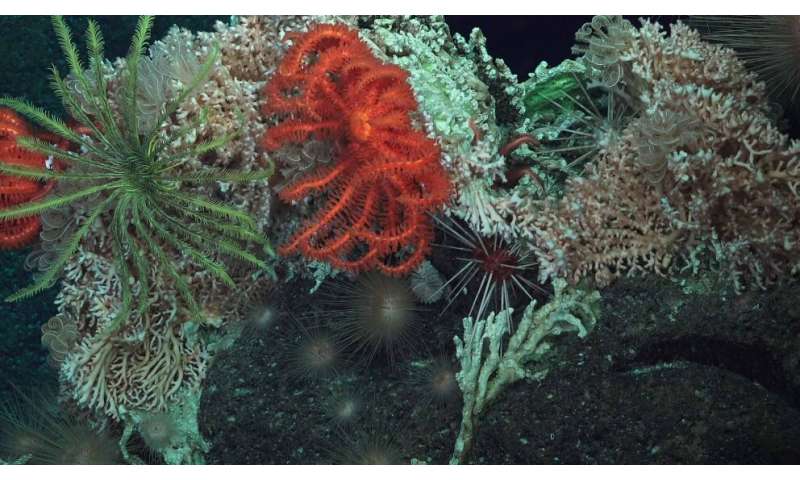
This wasn’t supposed to happen:
A collaborative study among the Rotjan Marine Ecology Lab at Boston University, the Kagan Lab at Harvard Medical School, Boston Children’s Hospital, the government of Kiribati, and others has found that there are some bacteria so foreign to humans that our immune cells can’t register that they exist, overriding the long-held belief of universal immunity, or that our cells can recognize any bacteria they interact with. Rather, the study found, some bacteria are solely defined by their local habitat or surroundings. Their findings were published Friday, March 12, in Science Immunology…
All bacteria cells have an outer coating. Lipopolysaccharide, or LPS, is the outermost layer of the bacterial membrane. This outermost layer is what allows other organisms to recognize it. LPS receptors of human cells, mice and horseshoe crab were unable to detect 80% of deep-sea bacteria examined. Now that we know this, there is a pressing need to learn more about host-microbe interactions in every ecosystem, as new discoveries may be made in each habitat. This opens up the potential for new biological tools and therapeutics.
Jessica Colarossi, Doug Most, Boston University, “Researchers discover deep sea microbes invisible to human immune pattern recognition” at Medical Xpress
They might be useful, as the researchers say. But now that they are starting to work with them, we’d better hope that none of them turn on us, for lack of something more familiar to them that they can infect.
The paper is closed access.